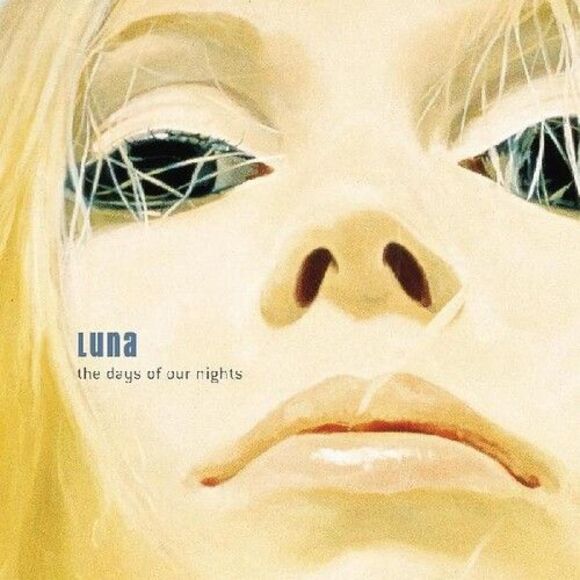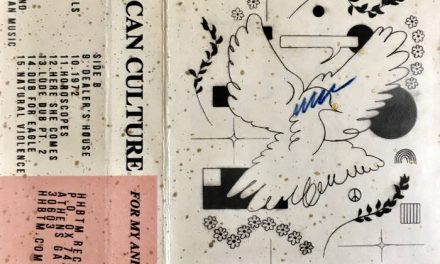The first time I heard Luna’s The Days of Our Nights, I was sitting in my local library reading a battered copy of The Rolling Stone Encyclopedia of Rock and Roll. Peering into the lives and discographies of 2,000 prominent rock figures, half of which were unknown to me, opened my eyes to a whole musical world I was missing. Curiously, I asked my sister, sitting next to me, her favorite unappreciated album, and she responded by pulling up Luna’s fifth release on my phone. I subsequently listened to the whole thing front to back and was instantly enamored with Dean Wareham’s whiny vocals and silky guitar. The album puts a twist on nostalgia, looking back on past faces and experiences through eccentric metaphors and vague lyrics. Today, I’m looking back on The Days of Our Nights, released exactly 26 years ago.
After the breakup of lead singer Dean Wareham’s band Galaxie 500, Luna was formed and released four consistently good albums in the span of 6 years. In 1999, fans were eagerly anticipating the release of their fifth album, The Days of Our Nights, when Luna was dropped from their label, Elektra. The album then sat in limbo for around six months until it was picked up by Jericho Records and released on October 26th, 1999. Initially, reviews of the album were mediocre, the general consensus that it was good but lacked emotional nuance and didn’t stand out against Wareham and the band’s vast discography. When researching the modern opinion of The Days of Our Nights, I found almost nothing, just a few sloppy sentences written in comment sections on obscure music forums. What I did find, however, was Rolling Stone’s description of Luna as “The best band you’ve never heard of”, which I find extremely fitting, because prior to this summer, I was not aware of their existence, yet I find myself listening to their music incessantly, almost compulsively now. The obscurity of The Days of Our Nights is doing music fans an injustice, and I think the album deserves a place in the conversation of sounds that came to shape ‘90s indie rock.
The opener “Dear Diary” pulls you into a different world with its hazy, distorted tone backed by Lee Wall’s ever-present drums. The next track, “Hello little one,” features a guitar solo that imitates classic rock in the way only a ‘90s musician could (and I may be a little biased, but at three minutes in, it sounds very similar to David Bowie’s “Heroes”). What follows is a beautiful meld of warm, melancholic, and at times peculiar songs that recall Dean Wareham’s encounters with the people and places that shaped him. My personal favorite, “Superfreaky Memories”, details the awkward messiness of youth as Wareham recounts an experience he had with a photographer he met in high school. The final track is a toned-down cover of Guns N’ Roses “Sweet Child of Mine”, which I think rivals the original and flows seamlessly with the rest of the album. In the modern context, The Days of Our Nights is a time capsule, transporting listeners back to the ‘90s. Its crisp, mellow guitar and rhythmic drums are quintessential to the era’s indie rock, and can easily be compared to the likes of The Smashing Pumpkins and Pixies.
Music holds such an important place in preserving history, and unfortunately, so much of it is lost to time. As Luna’s fifth album celebrates its 26th birthday, it serves as an important reminder to branch out of your regular listening bubble on occasion. If you’re lucky, you might be like me and stumble across something as captivating as The Days of Our Nights.
Cover art by Richard Phillips
Hi, my name is Ainsley Hopkins and I am a freshman at UA, majoring in English Literature. My favorite album is either Instrument Soundtrack by Fugazi or Disintegration by The Cure.








